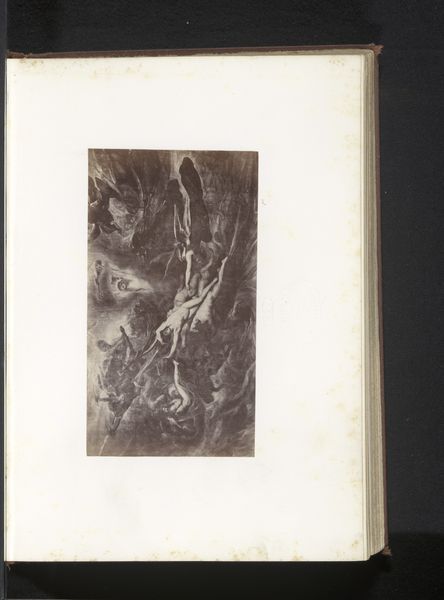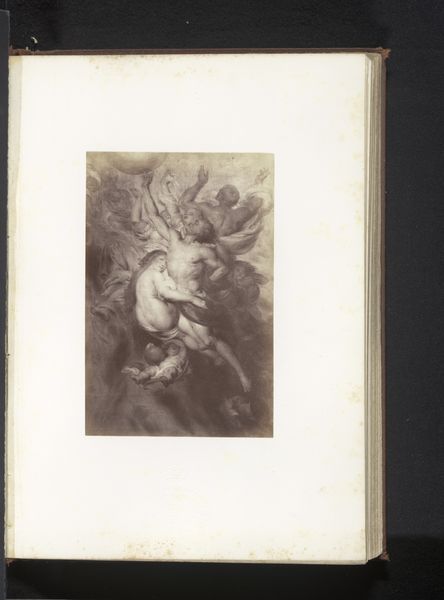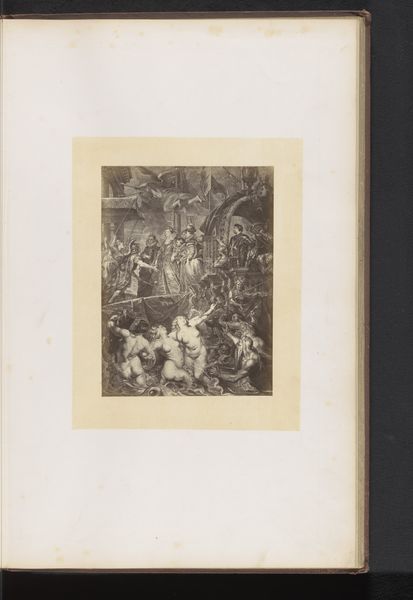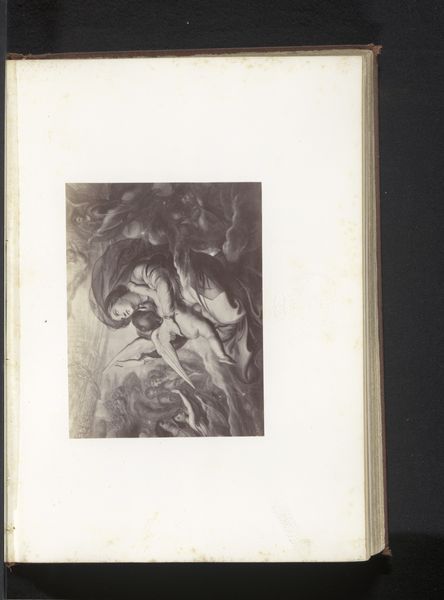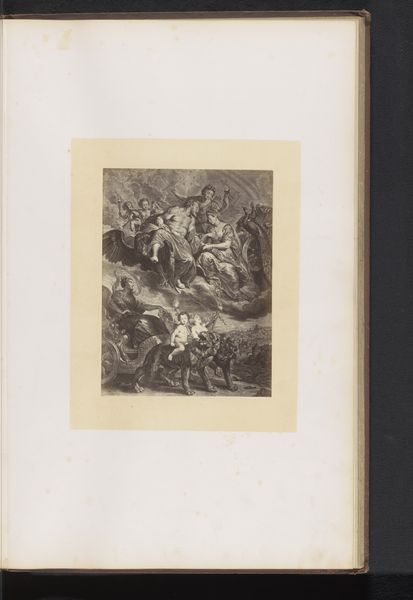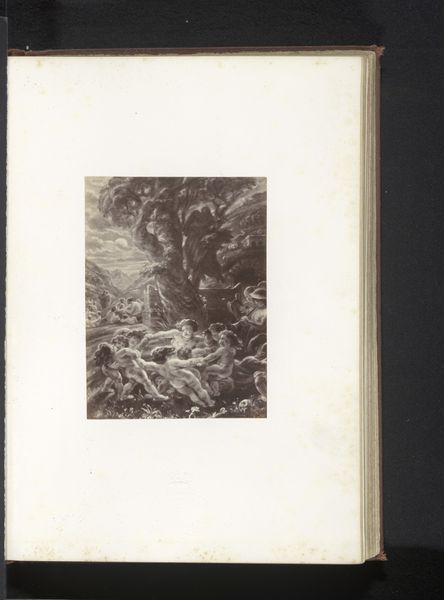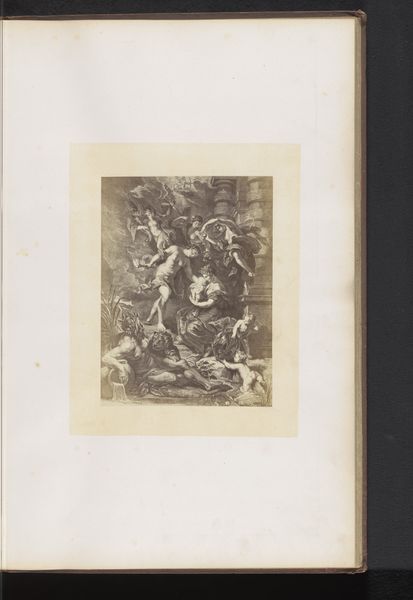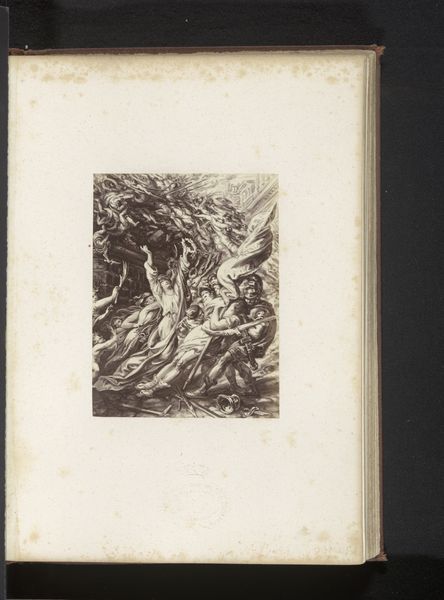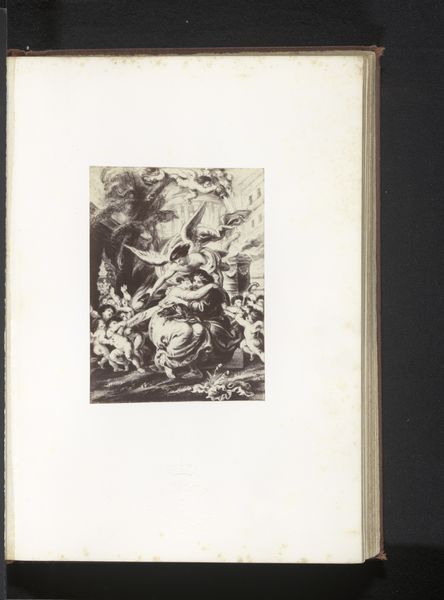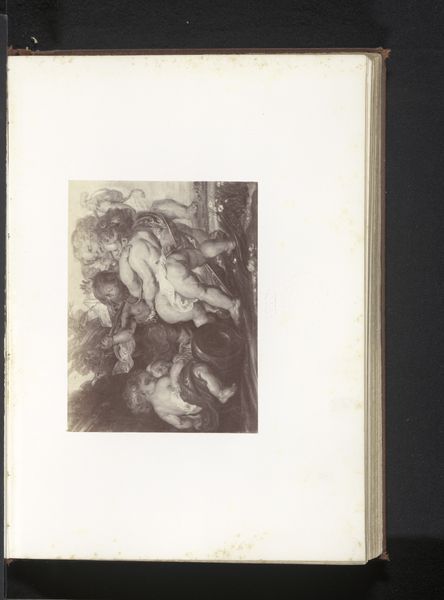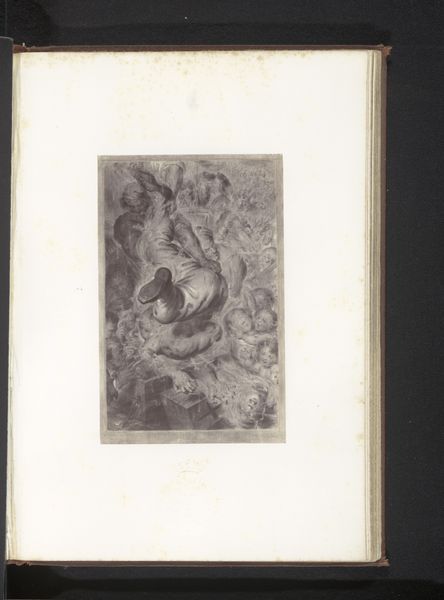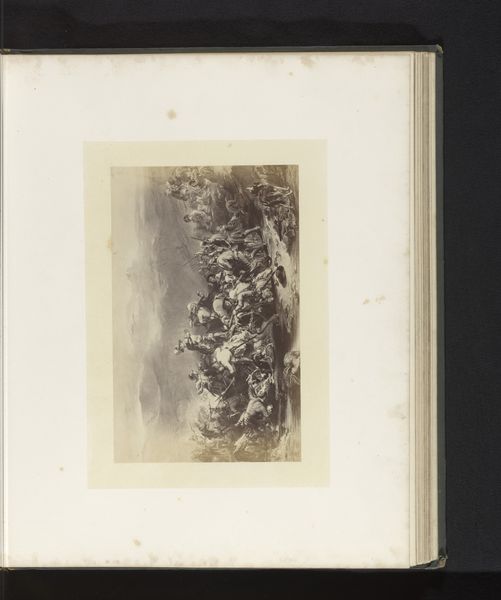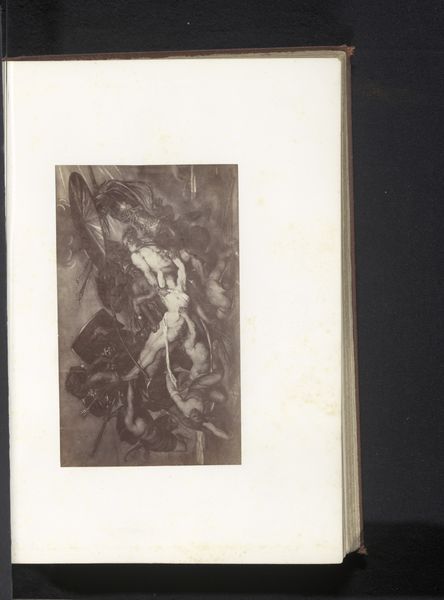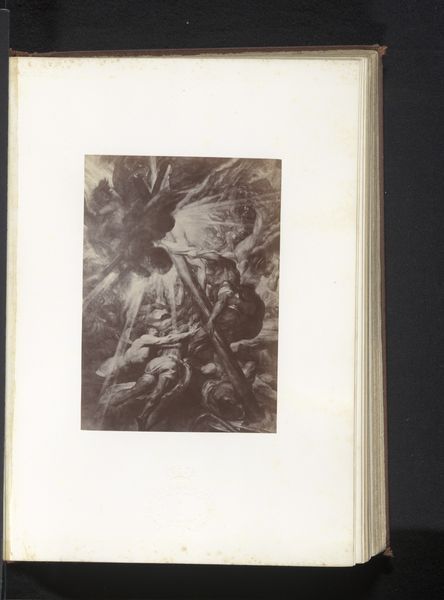
print, photography, engraving
# print
#
photography
#
history-painting
#
engraving
Dimensions: height 114 mm, width 174 mm
Copyright: Rijks Museum: Open Domain
Curator: This image presents a photographic reproduction of Antoine Wiertz's "The Homeric Battle," created sometime before 1868, and captured here as a print utilizing photography and engraving. My first impression is a maelstrom of motion, almost overwhelming in its chaotic composition. Editor: Yes, I feel that overwhelming energy too. The way the figures are interlocked and seemingly falling through space…it speaks to the brutality, the unglamorous reality, of warfare often absent from classical depictions. Wiertz is not romanticizing battle, but presenting it as a desperate struggle. The engraving as a medium, also tends to emphasize strong tonal contrast which heightens the violence, adding an element of psychological drama beyond the historical setting. Curator: Precisely! Wiertz's choice to engage with a classical theme, the Homeric struggle, while imbuing it with this sense of modern chaos and unflinching realism, highlights a shift in how conflict was being viewed and portrayed in the 19th century. Editor: The reproduction here also changes the original context. By being reproduced as a photograph, it became widely accessible which democraticizes this monumental scene. So, what impact did the reproduction process, in and of itself, have on its reception at the time, would you say? Curator: Indeed, by disseminating this historically grand and evocative scene through more accessible printmaking techniques it brought Wiertz's visceral depiction to a larger public—perhaps stirring complex reflections on heroism, mortality, and national identity. Notice too the visual interplay between dark shadows and stark highlights. It speaks to inner torment but the universal aspects of mortality too. This evokes a sense of anxiety about an eternal struggle in the physical world and human condition itself. Editor: It truly becomes a meditation on struggle and humanity's dark side—something to consider the next time we reflect on our relationship with classical themes and ideals. The way this artwork prompts an evaluation of how society views historical and internal conflicts. Curator: Yes, the original composition carries layered emotions that are successfully carried forward into its reproductive image that makes it haunting and universally resonant.
Comments
No comments
Be the first to comment and join the conversation on the ultimate creative platform.
